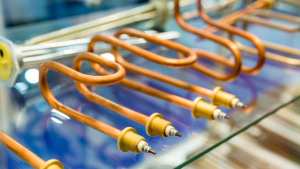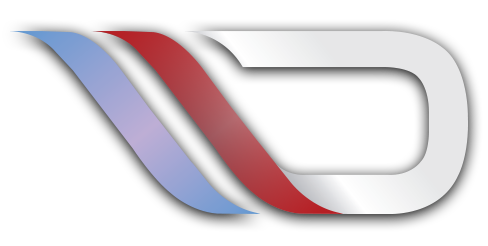Commercial HVAC Tips: Summer 2024
As summer approaches, facility managers and HVAC technicians face the annual challenge of keeping commercial buildings cool and comfortable. With soaring temperatures, it’s crucial to ensure that your HVAC systems are operating at peak efficiency. In this blog post, we’ll provide essential tips for maintaining your commercial HVAC system during the summer of 2024, ensuring both comfort and cost-effectiveness.

1. Schedule Regular Maintenance
One of the most effective ways to keep your HVAC system running smoothly is through regular maintenance. Schedule biannual check-ups with a professional HVAC technician to inspect and service your system. This includes:
- Inspecting and Cleaning Coils: Dirty coils reduce efficiency and strain the system. Clean coils ensure better heat exchange and cooling performance.
- Checking Refrigerant Levels: Low refrigerant levels can lead to inefficient cooling and increased energy consumption. Ensure that refrigerant levels are adequate and there are no leaks.
- Lubricating Moving Parts: Proper lubrication reduces friction in motors and bearings, preventing wear and tear and enhancing the system’s lifespan.
2. Upgrade to High-Efficiency Filters
Air filters play a critical role in maintaining indoor air quality and HVAC efficiency. Upgrade to high-efficiency filters, such as HEPA or MERV-rated filters, to capture more dust, pollen, and other airborne particles. Regularly replace filters every 1-3 months or as recommended, to ensure optimal airflow and reduce the strain on your system.
3. Optimize Thermostat Settings
Smart thermostat management can significantly impact energy savings and comfort. Consider the following:
- Programmable Thermostats: Installing programmable or smart thermostats allows you to set temperature schedules based on occupancy, ensuring that the building is cool when needed and saving energy when not.
- Temperature Setpoints: During peak hours, set the thermostat to a comfortable but energy-efficient temperature, typically around 74-78°F. For unoccupied periods, increase the setpoint to reduce cooling demand.
4. Inspect and Seal Ductwork
Leaky ducts can lead to significant energy loss, reducing the efficiency of your HVAC system. Inspect ductwork regularly for signs of leaks or damage. Seal any gaps with mastic sealant or metal tape to ensure that conditioned air reaches its intended destination without wastage.
5. Monitor and Manage Humidity Levels
High humidity can make indoor environments feel warmer than they actually are. Use dehumidifiers or integrate humidity control into your HVAC system to maintain indoor humidity levels between 30-50%. This not only improves comfort but also prevents mold and mildew growth.
6. Ensure Adequate Ventilation
Proper ventilation is essential for maintaining indoor air quality and cooling efficiency. Ensure that vents and registers are unobstructed by furniture or equipment. Consider installing energy recovery ventilators (ERVs) to enhance ventilation without compromising energy efficiency.
7. Perform an Energy Audit
An energy audit can identify inefficiencies and areas for improvement within your HVAC system. Work with a professional auditor to assess your building’s energy use and develop a plan to optimize performance. Potential upgrades may include:
- Variable Speed Drives (VSDs): Installing VSDs on fans and pumps can adjust motor speed based on demand, improving energy efficiency.
- Advanced Controls: Implementing advanced controls and automation can optimize system performance and reduce energy consumption.
8. Plan for System Upgrades
If your HVAC system is aging or frequently requires repairs, it may be time to consider upgrading to a newer, more efficient model. Modern HVAC systems offer improved efficiency, advanced controls, and better performance, resulting in significant long-term savings. Consult with an HVAC professional to determine the best options for your building.
9. Educate Building Occupants
Encourage building occupants to adopt energy-saving practices, such as closing blinds during peak sunlight hours, using ceiling fans to circulate air, and avoiding the use of heat-generating appliances during the hottest parts of the day. Small behavioral changes can collectively contribute to reduced cooling demand and improved comfort.
10. Stay Informed on Industry Trends
The HVAC industry is continually evolving with new technologies and best practices. Stay informed on the latest trends, such as advancements in heat pumps, AI-driven HVAC management, and renewable energy integration. Adopting innovative solutions can further enhance the efficiency and sustainability of your HVAC system.
Conclusion
By implementing these commercial HVAC tips for summer 2024, facility managers, building owners, and HVAC technicians can ensure their systems operate efficiently and effectively. Regular maintenance, smart upgrades, and proactive management are key to maintaining a comfortable and cost-effective indoor environment. Prepare now to beat the heat and enjoy a cool, productive summer season.
By focusing on these critical areas, you can ensure that your commercial HVAC system is prepared for the summer months ahead, delivering optimal performance and energy savings. If you found this blog post helpful, don’t forget to share it with your network!
For more expert advice and professional HVAC services, contact us today. Let’s make sure your building is ready to handle the summer heat!
New Hudson #248-486-6500
West Branch #989-999-4822













